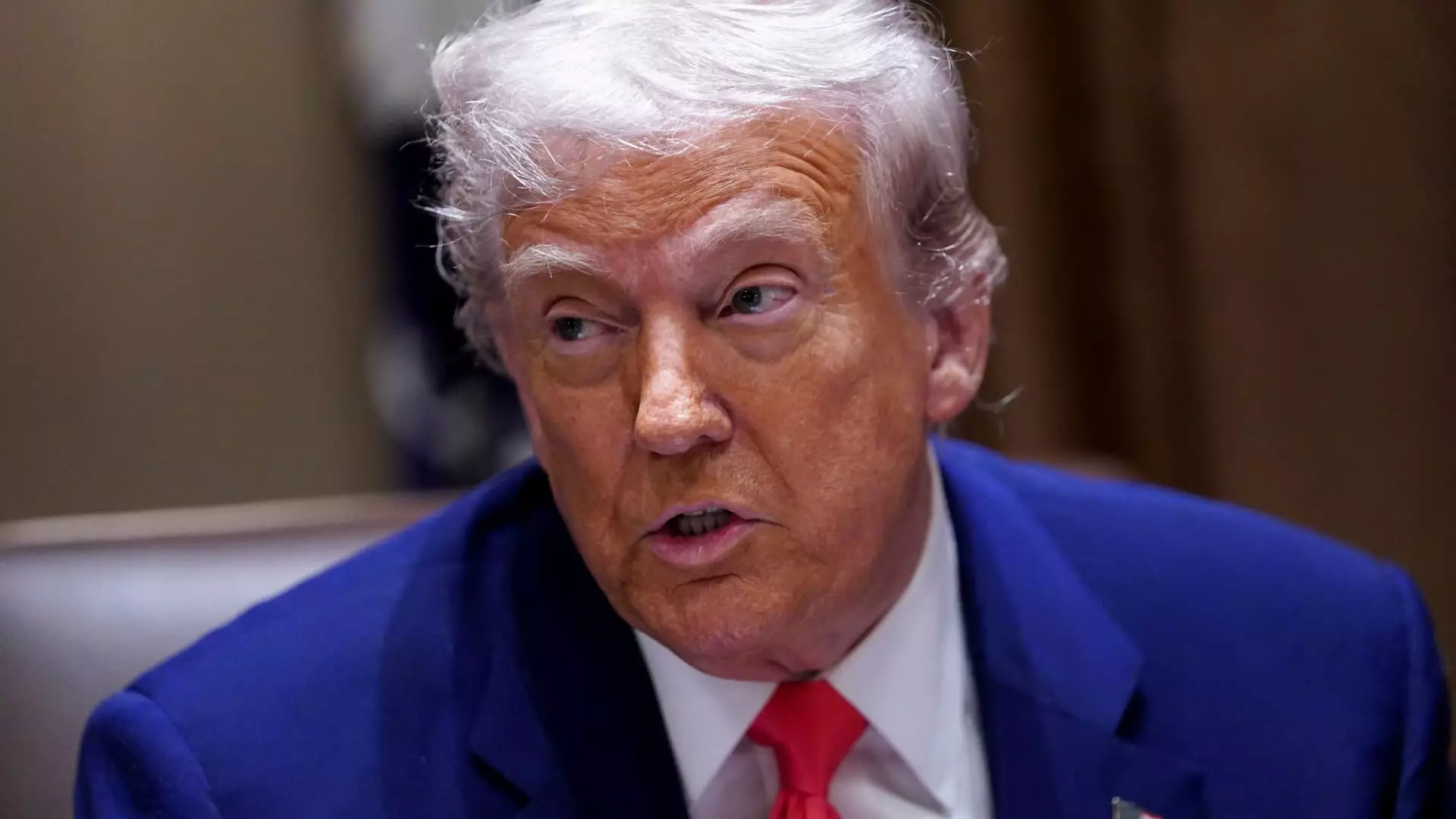In what feels like a pivotal moment for the American economy, President Donald Trump’s recent tariff hike on Chinese imports has set the stage for a potential trade apocalypse. Economist Erica York’s analysis highlights a grim reality where a tariffs surpassing the triple-digit mark could effectively sever economic ties between the U.S. and China. With justifiable concern, York noted that tariffs cranked up to 145% could lead to a devastating downturn, affecting not only imports but also the interconnected web of global trade. Any attempt to cloak this decision in the rhetoric of protectionism fails to mask the inevitable economic costs awaiting ordinary Americans.
The Market’s Swift Reaction
The financial markets have expressed their discontent rapidly, with noticeable declines following the White House’s affirmation of a colossal 145% tariff rate on Chinese goods. The seeming volatility serves as a mirror reflecting the general uncertainty that accompanies such drastic trade moves. Investors, who initially thought Tuesday’s gains would signal a smooth transition into economic prosperity, are now left grappling with fear and disbelief. If the administration wishes to paint a rosy picture of economic growth while imposing tariffs that strip trade of its lifeblood, they are simply talking to themselves.
The False Promise of Tariff Increases
One of the most salient points made by the Tax Foundation is that Trump’s tariffs represent the most substantial tax increases since 1993—outstripping those initiated by presidents Bush and Obama. While some might argue that increased federal tax revenues would help reduce the national deficit, this perspective fails to account for the broader economic implications. Sticker shock on goods, inflationary pressures, and the stifling of competition are all outcomes of such protectionist policy. The financially squeezed middle class is unlikely to celebrate an increase in federal revenues while they struggle to make ends meet at home.
The Retaliatory Spiral
China’s response has been equally promising for escalating tensions; their increase of retaliatory levies on U.S. imports suggests that rather than creating favorable trade conditions, Trump’s actions might only incite further grievances. Crafting a narrative that positions America as a victim in the grand theater of trade is a slippery slope, and one that risks alienating crucial allies while hardening the resolve of rivals. In a contest where the stakes steer the economy, ironically, both parties might find themselves in a zero-sum game with devastating repercussions.
The Broader Economic Narrative
This economic standoff does more than affect trade balances; it risks undermining decades of global economic integration that has spurred innovation and cooperation. Economies operate on a set of interdependencies that cannot be easily untangled without severe repercussions. By adopting approaches reminiscent of 1940s protectionism, America risks spiraling into an era of economic isolation, which is antithetical to the values of free-market capitalism. Navigating these turbulent waters requires a keen understanding of international relations; without such insight, the U.S. may find itself becalmed in a self-imposed trade embargo of its making.
Rather than clinging to outdated notions of economic nationalism, it’s time for policymakers to engage in dialogue, explore new trade agreements, and foster relationships with global partners. The past might have to be revisited, but instead of retrenching in isolation, let’s march forward with the collaborative spirit that once defined American economics. The consequences of choosing otherwise will soon prove to be too heavy a burden for a nation that has always prided itself on resilience and innovation in the face of adversity.

